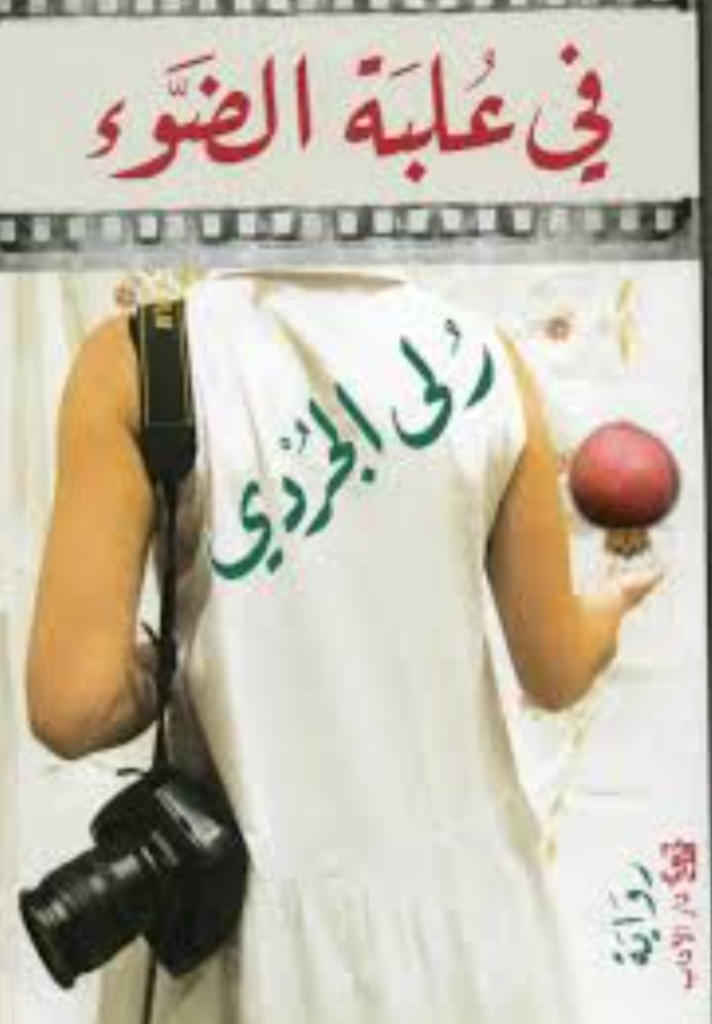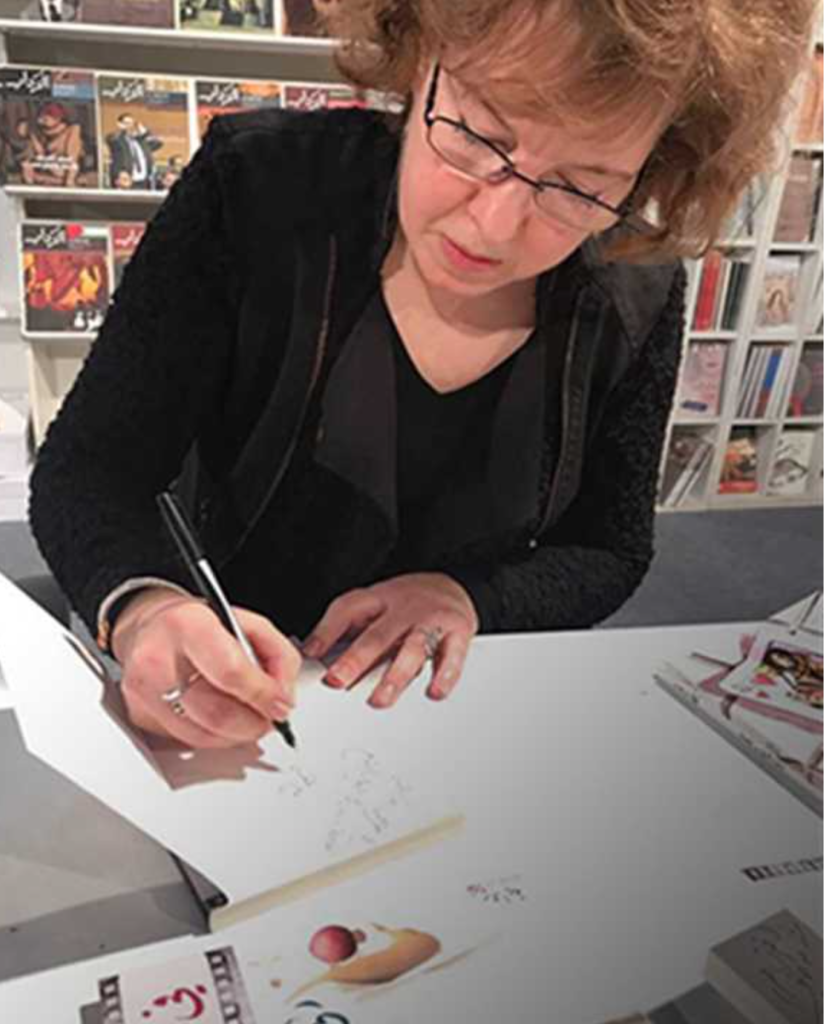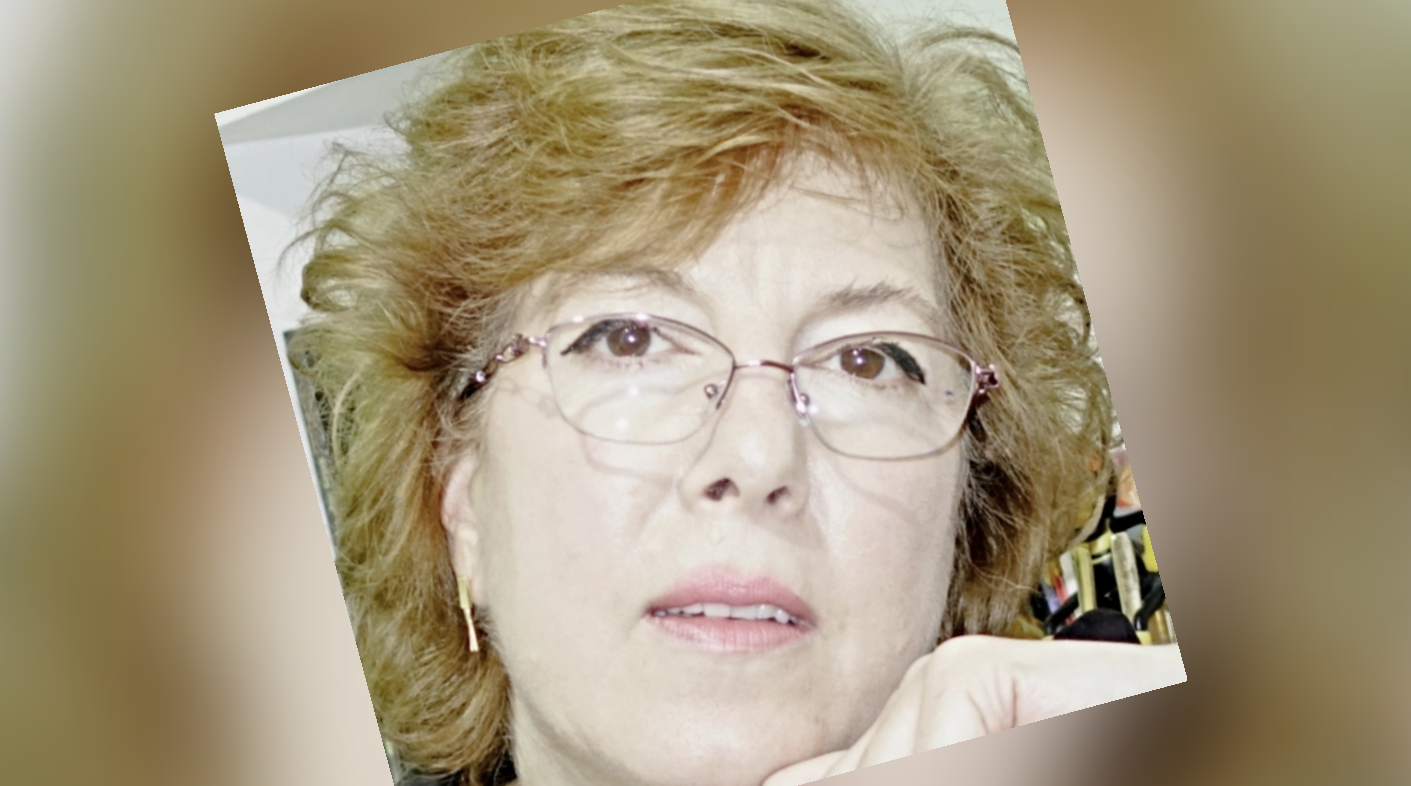…نشر موقع عرب ليت .org.Arablit , مقابلة مع صديقة موقعنا ووصديقة مدونة ” شهرياد الكلام ” الشاعرة والكاتبة رلى الجردي ابي صعب حول روايتها الجديدة “في علبة الضوء ” حيث تناول الحديث الذي كتب بقلم Turgul Mende مختلف مراحل كتابتها للرواية واعمالها المقبلة .
المقابلة التي نشرت باللغة الإنجليزية , وترجمتها إلى موقعنا بالعربية الكاتبة والشاعرة جمانة السبلاني .
هنا نص المقابلة :
رولا جردي أبي صعب ، عن كتابة رواية في الايمان والشك والعنف من خلال عدسة الكاميرا
..
فازت البروفيسور رولا جردي أبي صعب الشهر الماضي بجائزة خير الله عن روايتها ” في علبة الضوء “:
بقلم Turgul Mende
الرواية عبارة عن سرد متعدد الطبقات يمتد لعدة أجيال ، تدور أحداثه حول حياة امرأتين ، نور وسارة.
نشرت مجلة بانيبال ” Banipal ” مقتطفًا من ترجمة مايا تابت ، تتحدث مع الاستاذة رولا جردي أبي صعب عن أصول الرواية وتطورها ، والنشر وعملية الترجمة ، والاختالفات بين كتابتها الاكاديمية والادبية ..
# كيف تصفين تلك الكاميرا الغامضة لشخص لا يفهم سياقها الادبي ؟
– رولى ج. أبي صعب : في بيت ملاذ روحي ، حيث خطت نور خطواتها الأولى ، كانت خالتها سارة تنشر تعاليمها الصوفية ضد التعاليم العنيفة المتزمتة لزعيم ذكر . انضمت إلى سارة ابنة عمها مهيبا ، وهي امرأة ممزقة بين رغباتها الدنيوية وتبجيلها السري لقديسات المسيحية. في عالم مزقته الحروب الأهلية والاستعمار ،
تبدأ نور في كشف حقائق جديدة حول نظرة عمتها للعالم ، والماضي الخطير لوالدها ، والسيد ريبلي ، الرجل الانجليزي الذي عاش بين سكان بلدتها لعقود.
حملها حب نور للكاميرا إلى نيويورك حيث تدرس إخراج الأفلام وتلتقي بجابر ، نجل ضابط مخابرات عراقي.
إن حساسيتها تجاه الشتات ، وفقدانها للإيمان ، وحبها لجابر تسمح لها برؤية نفسها ونيويورك – موطنها الجديد – في ضوء جديد. كما يسمح لها بالتصالح مع جسدها الذي يصوره الأخرون على أنه “ذكوري على الرغم من الألوان والنغمات القوية للشخصيات المحلية التي تم تصويرها في الرواية فضلا عن روح الدعابة والغضب ، إلا أنّ الرواية تؤكد على الوحدة الانسانية والعالمية وراء تعدد الشخصيات الموجودة في لبنان والعراق والولايات المتحدة وفلسطين.
الرواية في خيوطها الأدبية واللغوية تخلق توترات وتداخلات بين الكاميرا والعالم. الصورة والواقع. الخفية والظاهرة للحقائق الصوفية , وتوجيه الحقائق اليومية ؛ النور والتنوير. الوطن والشتات. المذكر والمؤنث.
كما تحكي الصور التي التقطتها الكاميرا وطرق عرضها ، قصة النظرة الاستعمارية في فلسطين والشرق الاوسط ..
# في عملك الأكاديمي ، بالإضافة إلى المواد الأخرى ، أنتِ تعملين على الدين والسلطة في لبنان. ما مدى تأثير عملك كمعلمة على عملك كمؤلفة؟
– رولى ج. أبي صعب : أنا شخص مختلف تماماً في كل مجال من هذه المجالات . أتعامل مع رواياتي و ِشعري على أنها أشكال فنية ، أستكشف فيها كل ما لا أريد توضيحه في الحجج والبراهين الأكاديمية. في هذا الفضاء الفني .
لقد سمحت لنفسي باستكشاف ما أشك فيه ، حتى التناقضات الخاصة بي ، وما تم إسكاته وتهميشه في العوالم المختلفة التي أعيش فيها.
ربما يكون هناك خيط واحد يمكن رؤيته في جميع أعمالي ، وهو اهتمامي بالنظر في كيف يصبح الرجال والنساء علمانيون في إطار سعيهم وراء المقدس والعكس صحيح بخلاف ذلك , وقد أكون مؤلفة في كل مجال من هذه المجالات ، ولا بأس بذلك.
# في شهر مارس ، فزتِ بجائزة خير الله. ما هو تأثير ذلك على روايتك وماذا يعني لك ككاتبة؟
– رولا ج. أبي صعب : أن الرواية عندما تلمس شخصا آخر وبعمق هو الشرف لي بحد ذاته ، ومن الرائع أن يتم منح هذه الجائزة الرائعة من قبل حكام متميزين مهتمين بتجارب الشتات بين الجنسين.
ككاتبة ، يشجعني هذا على تبني وحدتي ، إذا جاز التعبير ، لإثبات صحتها كجزء أساسي من هذه العملية الفنية. أشعر بأنني أقوى إلى حد ما وجاهزة للخلافات التي ستطلقها روايتي المقبلة ( مائة رفرفة ..مئة رعشة) التي ستظهر خلال شهر أو نحو ذلك من نفس الصحافة الطليعية في بيروت دار الآداب .
# هي رواية معقدة للغاية مع سرد متعدد الخيوط . متى ظهرت فكرة هذه الرواية وكم عدد المراحل التي أوصلتك إلىتلك التعقيدات في روايتك؟
– رولا ج. أبي صعب : كنت أجري محادثة مع صديق عن خالتي العظيمة من جانب والدتي ، الصوفية الدرزية البارزة، واستغرق الأمر سنوات مراهقتي في بلدة جبلية حيث كنا نحاول الهروب من ويلات الحرب الأهلية. لعدة أيام بعد ذلك ، شعرت بالحاجة إلى الكتابة عن النساء المتدينات اللواتي “أصبحن رجالًا” ، وعن الحب والإيمان والشك ، جزئيًا من خلال عدسة الكاميرا. لم أخطط أبدًا لكتابة هذه الرواية ، لكن بعض الصور والأصوات تغلبت علي ، لذا أكملتها في ستة أشهر ..
# تأخذنا الرواية في رحلة لثلاث نساء مختلفات في لبنان. إلى أي مدى تنعكس التجربة الشخصية في كتاباتك وأين تجدين مصدر إلهامك عندما يتعلق الأمر بصياغة الشخصيات؟
– جزء من الإلهام جاء من تجربتي الخاصة في بيروت ، حيث عشت لمدة أربع سنوات ، وفي نيويورك. كانت والدتي وعالمها مصدر إلهامي آخر ، شكلتهما العادات الدرزية والصوفيات البارزات . كانت تتنقل بين بيروت في الشتاء ، وبعقلين مسقط رأسها في الصيف. لقد أحبت المدينة ، وتعتز بنسيجها المميز ، والمشهد الموسيقي والسينمائي ، وتتمتع بصداقات عميقة هناك. لقد تعاملنا مع المدينة والمساحات الحضرية على أنها ضرورة للحرية الشخصية ، لمعرفة أنفسنا. كانت أيضًا راوية لقصص رائعة ، وشعرت بالاطمئنان من قوتها وانفتاحها على العالم..
في هذه الرواية ، أرى عوالمنا ، عالمها وعالمي ، متشابكة ..الباقي هو الخيال ، عرض فني لشخصيات وعوالم موجودة وغير موجودة ..

# كيف توصلت إلى العنوان ؟ وكيف يعكس العنوان قصة الرواية؟ ربما يمكنك إعطاء خلفية عن غلاف الكتاب أيضًا؟
– رُلى ج. أبي صعب : سميت الرواية في البداية ، ” ذاكرة كوداك “, في الرواية ، أناقش إعلان كوداك ، والعلاقة بين التقاط لقطة الكاميرا والتصوير. لكن السيدة رنا إدريس ، رئيسة دار الأدب للنشر ، اقترحت إطارًا أوسع يتعلق بتفاعل الضوء في غرفة مظلمة – الكاميرا الغامضة – وقد أحببته ، لذلك انتهى بي المطاف باختيار عنوان صندوق من نور هو ” في علبة الضوء ” ثم ترجمت مايا تابت ، المترجمة المتميزة ، الرواية ، وقد اختارت Camera Obscura كعنوان ، مما يعطيها أيضًا سياقًا أوسع. لكن مرة أخرى ، العناوين صعبة ، ولا أعرف العنوان الذي سيصرّ الناشرون عليه.
# ظهرت روايتك في عدد من مجلة بانيبال ، وترجمت مايا تابت مقتطفًا من المجلة. ما مدى حديثك مع المترجم وكيف تجري عملية ترجمة الرواية؟
– رولا ج. أبي صعب : أنا في محادثة وثيقة مع مايا ، والعلاقة بيننا مجزية. أحترم قرارات الترجمة التي اتخذتها ، وهي تحاول التوصل إلى إجابات إبداعية لما يبدو لي أحيانًا غير قابل للترجمة. أنا شاعرة والرواية فيها أنماط وتعبيرات شعرية ، مما يشكل تحديًا أكبر للمترجم ، لكن مع مايا أرى النص يتدفق. إنه واضح وأنيق.
# ما مدى صعوبة العثور على ناشر لهذا النوع من الروايات؟
– رولا ج. أبي صعب : العثور على ناشر تحترمه لروايتك أمر صعب للغاية. كان بإمكاني نشره مع المطابع الأخرى بسرعة وسهولة ، لكن دار الآداب دار نشر من الدرجة الأولى. قمت بتقديمه وسُررت لمعرفتي أنهم سينشرونه بعد أشهر ..
# بأي طريقة تتغير لغتك بين القصائد المكتوبة باللغتين العربية والإنجليزية وروايتك ؟
– رلى ج. أبي صعب : هذا سؤال رائع ومن الصعب جدًا الإجابة عليه. لا أستخدم اللغة بنفس الطريقة في الرواية والقصيدة.
في الشِّعر ، لا أروي القصص ، بل أرسم بضربات تجريدية واسعة تستحضر الحسيٌة والفلسفية.
عندما أكتب الشعر باللغة العربية ، فأنا أعمل باستمرار مع المثل العليا “الكلاسيكية” للتقليد الشعري العربي وضدها ، محاولةً التدخل في اللغة نفسها. أصبحت كتابة الشعر باللغة الإنجليزية مهمة جدًا بالنسبة لي ، وتحديداً أرى حساسيات مشتركة لكن بتفاوت مختلف في القصائد العربية والإنجليزية.
في الرواية ، أحب أن أخوض في القصص الدقيقة للشخصيات وأماكنهم المحلية. على الرغم من ذلك ، قال اثنان من المراجعين إن رواياتي سينمائية ، وهذا العنصر “السينمائي” شائع في القصائد أيضًا.
# هل يمكنك إخبارنا بشيء عن روايتك المقبلة؟
– رولا ج. أبي صعب : ستظهر روايتي الجديدة ، مائة رفرفة (Mi’atu Ra’sha) قريبًا وستصدر من بيروت. وذلك بعد أن واجه نشر هذه الرواية تأخيرا لمدة عام بسبب الأحداث المأساوية في أكتوبر 2020 في بيروت والانتفاضات التي أعقبت ذلك ، فضلا عن كوفيد.
لذلك ، وحين كنت أنتظر ظهور هذه الرواية ، كتبت رواية أخرى بعنوان ( السمك البلشفي ) ..سمك البلشفي , هي رواية تختلف عن رواياتي السابقة. لا أعرف متى ولادتها ومتى ستشهد طباعتها .
نقلا عن Arab lit
اجرى الحوار Tugrul Mende
ترجم المقابلة إلى العربية : الكاتبة جمانة السبلاني

#هنا النص الإنجليزي الأصلي للمقابلة مع الروائية والشاعرة رُلى جردي أبي صعب :
Rula J. Abisaab on Writing a Novel of Faith, Skepticism, and Violence Through a Camera’s Lens
Last month, Prof. Rula J. Abisaab won the Khayrallah Prize for her novel Fi ‘ulbat al-Daw’ (Camera Obscura):
By Tugrul Mende
The novel is a multi-layered narrative spanning several generations, built around the lives of two women, Nour and Sarah. Banipal magazine published an excerpt in maia tabet’s translation. Below, we talk with Prof. Rula J. Abisaab about the novel’s origins and development, publishing and the translation process, and the differences between her academic and literary writing.
How would you describe Camera Obscura to someone with no understanding of its literary context?
Rula J. Abisaab: In a house of spiritual retreat, where Nour took her first steps, her aunt Sara was spreading her mystical teachings against the puritanical violent ones of a male leader. Sara was joined by her cousin Mahiba, a woman torn between her worldly desires and her secret veneration of Christianity’s women saints. In a world torn apart by civil wars and colonialism, Nour starts to unravel new facts about her aunt’s worldview, the dangerous past of her own father, and Mr. Ripley, the Englishman who lived among her townspeople for decades. Nour’s love for the camera carries her to New York where she studies film directing and meets Jaber, the son of an Iraqi Intelligence officer. Her diasporic sensibility, her loss of faith, and her love for Jaber allow her to see her self and New York — her new home — in a new light. It also allows her to come to terms with her own body, depicted by others as “masculine.”
Despite the strong colors and tones of the local characters depicted in the novel, as well as their humor and anger, the novel stresses human unity and universality behind the multiplicity of characterssituated in Lebanon, Iraq, the US, and Palestine. In its literary and linguistic threads, the novel creates tensions as well as overlaps between the camera and the world; image and reality; hidden and apparent; mystical truths and direct everyday ones; light and enlightenment; home and diaspora; masculine and feminine. The images captured by the camera, and the ways in which they are presented, also tell the story of the colonial gaze in Palestine and the Middle East.
In your academic work, in addition to other subjects, you work on religion and power in Lebanon. How much does your work as a scholar influence your work as an author?
RJA: I am a very different person in each of these areas. I treat my novels and poetry as forms of art, in which I explore all that I do not want to articulate in academic arguments and proofs. In this artistic space, I let myself explore what I am skeptical about, even my own contradictions, and what has been silenced and marginalized in the various worlds I inhabit. There is probably one thread that can be seen in all my works, namely, my interest in looking at how women and men become secular within their pursuit for the sacred and vice versa. Other than that, I may come across as a different author in each of these areas, and that is fine.
In March, you won the Khayrallah Prize. What effect does this have on your novel and what does it mean for you as a writer?
RJA: That the novel had touched someone else deeply is an honor in and of itself, and to be awarded this remarkable prize by distinguished judges who are interested in gendered diasporic experiences is wonderful. As a writer, it encourages me to embrace my loneliness, so to speak, to validate it as an essential part of this artistic process. I feel somewhat stronger and ready for the controversies that my next novel, One Hundred Flutters (Mi’at Ra`sha) will unleash. It will appear in a month or so from the same vanguard press in Beirut, Dar al-Adab.
Camera Obscura is a very complex novel with a muli-layered narratives. When did the idea of this novel emerge and in how many stages do you develop this complexity in your narrative?
RJA: I was having a conversation with a friend about my great aunt on my mother’s side, a prominent Druze mystic, and it took me to my adolescent years in a mountain town where we were trying to escape the ravages of the civil war. For days after that, I was beset by the urge to write about pious women who “became men,” and about love, faith and skepticism, partly through the lens of the camera. I never planned to write this novel, but certain images and voices overcame me, so I completed it in six months.
The novel takes us on a journey of three different women in Lebanon. How much is personal experience reflected in your writing and where do you find your inspiration, when it comes to crafting characters?
RJA: Part of the inspiration came from my own experiences in Beirut, where I lived for four years, and in New York. Another source of inspiration was my mother and her world, shaped by Druze customs and prominent women mystics. She moved between Beirut in the winter, and Baakline, her hometown in the summer. She loved the city, cherished its cosmopolitan fabric, the musical and film scene, and enjoyed deep friendships there. We both approached the city and urban spaces as a necessity for personal freedom, for knowing ourselves. She was a great storyteller too, and I felt reassured by her strength and openness to the world. In this novel, I see our worlds, hers and mine, interwoven. The rest is imagination, an artistic presentation of existing and non-existing characters and worlds.
Obscura? How does the title reflect the narrative of the novel? Maybe could you give a background on the book cover as well?
RJA: I had called the novel at first, “A Kodak Moment.” In the novel, I discuss Kodak’s ad, and the connection between taking a camera shot and shooting. But Rana Idriss, the head of al-Adab publishing house, suggested a wider framework that has to do with the interplay of light in a dark room —Camera Obscura — and I liked it, so I ended up choosing the title “A Box of Light.” Maia Tabet, a distinguished translator, is currently translating the novel, and she has chosen Camera Obscura as the title, which also gives it a wider context. But again, titles are tricky, and I do not know what title the publishers will insist on.
Your novel was featured in an issue of Banipal, and maia tabet translated an excerpt for the magazine. How much are you in conversation with the translator and how is the process of translating the novel going?
RJA: I am in close conversation with maia, and the relationship between us is rewarding. I respect her translation decisions, and she tries to come up with creative answers to what seems to me at times, untranslatable. I am a poet and the novel has poetic layers and expressions, which pose a greater challenge for the translator, but with maia I see the text flowing. It is lucid and elegant.
How hard was it for you to find a publisher for this kind of novel?
RJA: Finding a publisher whom you respect for your novel is quite hard. I could have published it with other presses quickly and easily, but Dar al-Adab is a first-rate publishing house. I submitted it and was elated to know months later that they would publish it.
In what way does your language change between poems written in Arabic and English, and your novel Camera Obscura?
RJA: This is a great question and a very difficult one to answer. I do not use the language in the same way in the novel and the poem. In poetry, I do not narrate stories, I paint in wide abstract strokes that evoke the sensual and the philosophical. When I write poetry in Arabic, I am constantly working with and against the “classical” ideals of the Arabic poetic tradition, trying to intervene in the language itself. Writing poetry in English became quite important to me, and defining. I see shared sensibilities but different executions in the Arabic and English poems. In the novel, I love to go into the meticulous stories of the characters and their local settings. Two reviewers though said that my novels are cinematic, and this “cinematic” element is common to the poems as well.
Can you tell us something about your forthcoming novel?
RJA: My new novel, One Hundred Flutters (Mi’atu ra’sha) will appear soon from Beirut. The publication of this novel faced a one-year delay due to the tragic events of October 2020 in Beirut and the uprisings which followed, as well as Covid. So, as I was waiting for this novel to appear, I wrote another one, titled Bolshevik Fish (Samak al-Bolshevik) which is distinct from my earlier novels. I do not know when it will appear in print.
Tugrul Mende is a regular contributor to ArabLit.









برافو جمانة 6